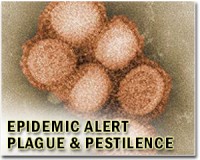| . |  |
. |
New Haven CT (SPX) Feb 10, 2010 Yale University researchers have found more than two dozen scent receptors in malaria-transmitting mosquitoes that detect compounds in human sweat, a finding that may help scientists to develop new ways to combat a disease that kills 1 million people annually. These olfactory receptors in the mosquito Anopheles gambiae offer scientists potential new targets for repelling, confusing or attracting into traps the mosquitoes that spread a disease afflicting up to 500 million people across a broad swath of the world's tropical regions, according to authors of the article published online Feb. 3 in the journal Nature. "The world desperately needs new ways of controlling these mosquitoes, ways that are effective, inexpensive, and environmentally friendly," said John Carlson, the Eugene Higgins Professor of Molecular, Cellular, and Developmental Biology at Yale and senior author of the study. "Some of these receptors could be excellent targets for controlling mosquito behavior." While it has long been known that mosquitoes are attracted to human scents, just how the mosquito's olfactory system detects the different chemical elements of human odor has been unknown. "Mosquitoes find us through their sense of smell, but we know very little about how they do this," Carlson said. "Here in the United States, mosquitoes are a source of annoyance, but in much of the world they're a source of death." Carlson's lab identified the first insect odor receptors in 1999 in studies of the fruit fly. The Yale team then found an ingenious way to use the fruit fly to study how the mosquito olfactory system works: They used mutant flies that were missing an odor receptor. Under the leadership of Allison Carey, an M.D./Ph.D. candidate in Carlson's lab and lead author of the study, the researchers systematically activated genes of 72 mosquito odor receptors in fruit fly olfactory cells that lacked their own receptors. The engineered flies were then exposed to a battery of scent compounds, and the responses conferred by each receptor were analyzed. Over the course of the project, Carey recorded 27,000 electrical responses in the genetically engineered fly/mosquito olfactory system to the library of scents. Particularly strong responses were recorded from 27 receptors - and most of these receptors responded to chemical compounds found in human sweat. "We're now screening for compounds that interact with these receptors," Carlson said. "Compounds that jam these receptors could impair the ability of mosquitoes to find us. Compounds that excite some of these receptors could help lure mosquitoes into traps or repel them. The best lures or repellents may be cocktails of multiple compounds." Carey says that more knowledge about mosquito behavior and odor reception will help develop more effective traps and repellents.
Share This Article With Planet Earth
Related Links Yale University Epidemics on Earth - Bird Flu, HIV/AIDS, Ebola
 Freeze on HIV spending sparks concern in Africa
Freeze on HIV spending sparks concern in AfricaKampala (AFP) Feb 3, 2010 A US decision to freeze spending on treatment for HIV in several African countries has prompted concern that some of the gains made against the AIDS epidemic since 2003 could be reversed. President George W. Bush's Emergency Plan for AIDS Relief (PEPFAR), launched in 2003, focused largely on treating patients in urgent need of medicine, but the new US administration's programme has shifted a ... read more |
|
| The content herein, unless otherwise known to be public domain, are Copyright 1995-2010 - SpaceDaily. AFP and UPI Wire Stories are copyright Agence France-Presse and United Press International. ESA Portal Reports are copyright European Space Agency. All NASA sourced material is public domain. Additional copyrights may apply in whole or part to other bona fide parties. Advertising does not imply endorsement,agreement or approval of any opinions, statements or information provided by SpaceDaily on any Web page published or hosted by SpaceDaily. Privacy Statement |